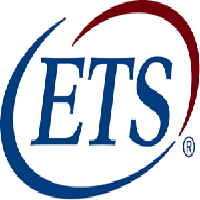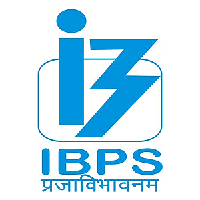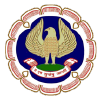.jpg)
DELE (Diplomas de Espanol Como Lengua Extranjera)
Based on the latest pattern | Detailed Analysis
The Diplomas de Espanol Como Lengua Extranjera (DELE) which certifies the degree of competence and mastery of the Spanish language, is granted by Spain Ministry of Education, Culture and Sport. The Universidad de Salamanca in Spain designs the papers and is incharge of corrections and the final evaluation of all papers and the Instituto Cervantes organised examination sessions.
Diplomas de Espanol Como Lengua Extranjera (DELE) Conducting Body: The DELE is conducted by the Instituto Cervantes.
Diplomas de Espanol Como Lengua Extranjera (DELE) Important Dates:
|
Events |
Dates |
Mode |
Link |
|
Registration Date |
1/05/2022 |
Online |
|
|
Admit Card Date |
It will be updated soon. |
||
|
Exam Date |
01/07/2022 |
||
|
Result Date |
It will be updated soon. |
Diplomas de Espanol Como Lengua Extranjera (DELE) Selection Procedure: DELE Spanish Diplomas are divided into six levels:
-
DELE A1: Certifies that the applicants is able to communicate using the language in a basic way in situations having to do with everyday situations and immediate needs
-
DELE A2: Certifies that the students can understand commonly expressions and phrases related to areas of expertise especially relevant to them.
-
DELE B1: Certifies applicants capacity to understand the gist of clear texts, in standard language, if they involve well-known topics related to work, studies or leisure. It certifies candidates ability to deal with circumstances that repeat while travelling in areas where Spanish is spoken; to produce simple and coherent texts about familiar topics, or topics which are of personal interest; and lastly to be able to describe experiences, wishes and event hopes, as well as to be able to briefly express opinions or explain plans.
-
DELE B2: It Certifies aspirants ability to interact with native speakers with a sufficient degree of spontaneity and fluency to enable easy and natural communication between interlocutors; produce clear and detailed texts about various topics, as well as defend an opinion about general topics, expressing the pros and cons for each argument; and lastly, understand the gist of complex texts about both abstract and concrete topics, including technical texts, provided they are within the aspirants' area of expertise.
-
DELE C1: Certifies linguistic competence to understand a wide variety of lengthy, and somewhat demanding texts, as well as to grasp the implicit meaning in the same; to express themselves spontaneously and fluently without apparent effort to find the correct words; to be able to use the language flexibly and effectively for social, academic, structured clear, and detailed texts about a complex topic, correctly using mechanisms of organization, articulation, and cohesion in the written text.
-
DELE C2: Certifies competence to communicate effectively in any circumstances, proving the ability to spontaneously adapt to any context, with a high degree of precision. The users of language show subtle control of nuances which allow for natural expression and fluent in all interactions.
Diplomas de Espanol Como Lengua Extranjera (DELE) Exam Pattern:
|
Section |
Reading |
Writing |
Listening |
Speaking |
|
A1 |
45 minutes, 4 tasks |
25 minutes, 2 tasks |
20 minutes, 4 tasks |
15 minutes |
|
A2 |
60 min., 5 tasks |
50 min., 2 tasks |
35 min., 5 tasks |
15 minutes |
|
B1 |
70 min., 5 tasks |
60 min., 2 tasks |
40 min., 5 tasks |
15 min + 15 min to prepare |
|
B2 |
70 min, 4 tasks |
80 min., 2 tasks |
40 min., 5 tasks |
20 min + 20 min to prepare |
|
C1 |
90 min., 5 tasks |
Integrated skills Listening, written and interaction (80 min., 2 tasks) |
50 min., 5 tasks |
Integrated skills Reading, Oral and Interaction (20 min + 20 min to prepare) |
C2 examination consists of three tests:
-
Test 1: Use of Reading and Listening, Language Comprehension (105 minutes, 6 tasks).
-
Test 2: Integrated skills: Listening, Reading, Written Comprehension, Expression and Interaction (150 minutes, 3 tasks).
-
Test 3: Integrated skills: Reading comprehension, Oral Expression and Interaction (20 minutes) (and 30 minutes to prepare).
Diplomas de Espanol Como Lengua Extranjera (DELE) Eligibility Criteria:
-
Candidates, irrespective of their age and background, can also apply for this test.
-
Age criteria: There is no age limit.
-
Educational Criteria: There is no Educational criteria to appear in this test.
Diplomas de Espanol Como Lengua Extranjera (DELE) Syllabus:
- A1
-
Use simple sentences and expressions regarding everyday situations.
-
Saying basic salutations like hello, please, thank you, goodbye and apologizing.
-
Accepting or rejecting an invitation
-
Meeting and presenting themselves and others.
-
Identify and describe people, places or things.
-
Express tastes, likes and dislikes, need and desires.
- A2
-
Communicate in a language minimally with native speakers
-
Ask, grant or refuse permission, orders and commands
-
Express, satisfaction, desire obligations and preferences
-
Listen to stories, news articles, express surprise and joy accordingly
-
congratulating and Addressing someone
- B1
-
Speak fluently expressing events on a variety of topics in the present, the future tense and the past
-
Understand question answers, summarize, communicate and offer some opinion on topics related to everyday life if spoken to them slowly and clearly
-
Understand and give directions to navigate in a city, order food, rent a car, and follow instructions to cook
-
Give and understand orders, express an agreement or a disagreement and ask and give help
-
Formulate hypothesis on a general topic for which you are aware of
-
Inquire about someone’s mood or health
-
Apologize or react to an apology
-
Begin and end a conversation, show interest in continuing a conversation, repeat what you have said and check if you have understood correctly
- B2
-
Narrate what others aspirants have told you using reported speech
-
Express stronger emotions like fear, concern, gratitude, grief, disappointment and appreciation
-
Take a stand as for or against any argument and proposal.
-
Write formal and informal letters using conventional methods
-
Paraphrase, summarize and assess what others have said in a social set up with remarkable fluency.
- C1
-
Write clear grammatically well-structured presentations, sentences, articles and texts on complex subjects
-
Defend ideas, arguments and point of view with a clear opening and conclusion
-
Show skepticism, disapproval on approval a variety of situations
-
Formulate some transmit messages or narrate events hypothesis, give orders/ commands, make requests in different timelines
-
Utilize the language in a literary sense, react participate, respond and interrogate on various topics in a flexibly and fluently
- C2
-
Understanding and responding to texts spoken at a medium or fast pace
-
Report oppositions, processes, results and circumstances
-
Linking ideas, adding information and forming structured speech
-
Provide recommendations or advice. Refer to issues and interpretations from your point of view and that of others
-
Ability to extract information and summarize texts. Also, the ability to produce different types of text using discourse markers to show process and result relationship
-
Express likes, wants and preferences and influence the ideas, decisions of the other party.
-
Understand and respond to questions post by a native speaker, without having them to rephrase or paraphrase their questions.
Diplomas de Espanol Como Lengua Extranjera (DELE) FAQ's:
Ques 1. What is DELE test?
Ans. DELE Spanish Diplomas are internationally recognized official titles and certify the holder's fluency in the Spanish language. The only way to earn a DELE Spanish Diploma is after taking the DELE exam.
Ques 2. Who organises the DELE examinations?
Ans. DELE exams are organised by the Instituto Cervantes and the Spanish government, through the Ministry of Education, Culture and Sport.
Ques 3. Who corrects the DELE examinations?
Ans. The Universidad de Salamanca of Spain corrects the exams.
Ques 4. How can an applicant sign up to take a DELE exam?
Ans. The first step is the registration on the Instituto Cervantes website after logging in the account. Candidates must follow the instructions.
Ques 5. Does an applicant apply for any level?
Ans. Yes as there is no requirement for a certificate for lower levels in order to take a higher-level exam.
Ques 6. When can an applicant get the certificate?
Ans. Candidates can receive their certificate a few months after taking the exam. The certificate is sent to the address provided by candidates at the time of registration.
Ques 7. What are the advantages of holding a DELE A1 certificate for young learners?
Ans. Following are the advantages:
-
It is valid indefinitely.
-
It motivates students between 11 and 17 years old because it is both a challenge and offers recognition of their learning at these early stages.
-
It is an official certification that complies with the Common European Framework of Reference for Languages (CEFRE).
-
It certifies and assesses knowledge of Spanish from the first moment of contact with the language.
Ques 8. How can an applicant register for the exam?
Ans. Registration for exams are carried out in the following ways:
-
At an examination centre - for exams taken outside of Spain. Young Learners, regardless of their location, always register at the examination centre.
-
Online - for exams taken in Spain.
Ques 9. Mention the modes to make the payment?
Ans. If the registration is done online, the payment can be made online at the time of registration through Credit card or PayPal or else Examination centre must be contacted for specific payment data.
Ques 10. What are the documents needed in the exam centre?
Ans. Following are the documents needed at the exam centre:
-
The official exam summons received by the candidate from the exam centre.
-
The registration receipt received by the candidate through email after registration.
-
Original photo ID (the same that was used for registration). Photocopies are not accepted.
Ques 11. What is the validity of the test?
Ans. The test is valid for the whole lifetime.
CONCLUSION: This exam offers such a great opportunity for the interested and eligible aspirants to accomplish their goal. It is a good occasion for interested aspirants. We the team of estudentbook wishes you all the best for your upcoming future. For more information regarding this you can visit our official website estudentbook.com.

.jpg)

.jpg)

.jpg)
.jpg)
.jpg)
.jpg)


